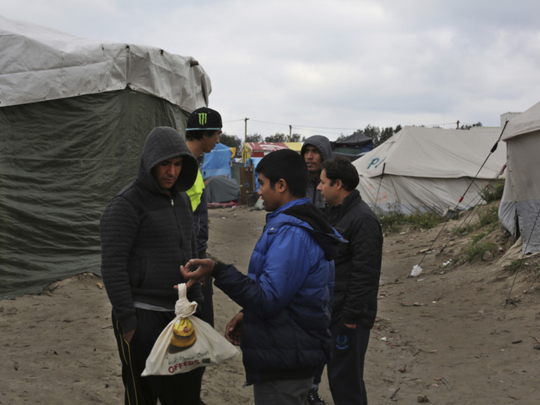
There can be no greater relief than that felt by a portion — about 24 — of the 1,200 children who are being pulled out of the rotting stench of the camp in Calais to join their families in the United Kingdom this week. For months now, pressure has been put on the British government to help these unaccompanied minors, who have been living in squalor an hour away. They have risked death by getting on lorries to come here because their lives are hardly lives at all. It is small relief in the grand scheme of what needs to be done to help the immigration crisis, though. They were taken to Croydon to register and see their families for the first time.
These children — who are mostly teenage boys — have been fast-tracked by the British Home Office as having a right to stay in the UK. Fast-tracking is hardly the right phrase, as so many of these refugees have been festering in squalid conditions for months. British singer Lily Allen burst into tears when she saw what was happening recently — not because she is a popstar, but because she is a human being. To see other human beings live like this is partly shocking because this humanitarian crisis is unrecognised by the United Nations, and one of the most frightening things about the camps is its lack of structure.
There is a desperate lawlessness with no protection for women or children and unaccompanied minors. There is simply a patchwork of different voluntary groups doing whatever they can for traumatised, ill and depressed people. When I was there, I saw children as young as 10, totally alone with men who claimed to be their “protectors”, lurking in the background. This “fast-tracking” — because the camp is be torn down very soon — did not come fast enough for many. Volunteers have estimated that there are about 400 unaccompanied minors in Calais.
Some have disappeared and others are dead. Raheemullah Oryakhel was 14 and had the legal right to come to England and join his brother in Manchester. His friends said that he lost faith that this would happen. He died last month falling off a lorry. In March, when the south section of the camp was demolished, 129 children went missing. What will happen when the whole camp goes?
Officials talk of “dispersal”, as if they are clearing vermin. A fortune is being spent on a wall. It is as though nothing has been learned. Sangatte was closed in 2002, following pressure from David Blunkett [a British politician]. Former French president Nicolas Sarkozy had promised that there would be no more migrants. Those people relocated to the woods or started sleeping on the streets — and here we are again but in even greater numbers.
Just as the Calais camp is about to be cleared, a team has been sent there to identify the children who are eligible to come to Britain: Children that we have known existed for months. While the Home Office has been dragging its feet, British politicians Stella Creasy, Yvette Cooper and Lord Dubs have been trying to speed up the process. When you are there you realise there is no one to help those children process their asylum claims.
The language around migrants, as we know it, has become so debased we cannot even see these youngsters as children. Until they are dead. Then we hear how they wanted to be an engineer or a footballer. When you chat to them you see so clearly that behind the big dreams are tiny hopes: A home, shelter, family, safety.
The French Interior Minister, Bernard Cazeneuve, has said he is merely asking “Britain to assume its moral duty”. Britain’s moral duty is bigger than 10 children. More may come next week. I hope so. I hope we see their smiling curious faces on TV screens. I hope that Britain welcomes them. I hope they find home there.
— Guardian News & Media Ltd
Suzanne Moore is an award-winning columnist for the Guardian.










